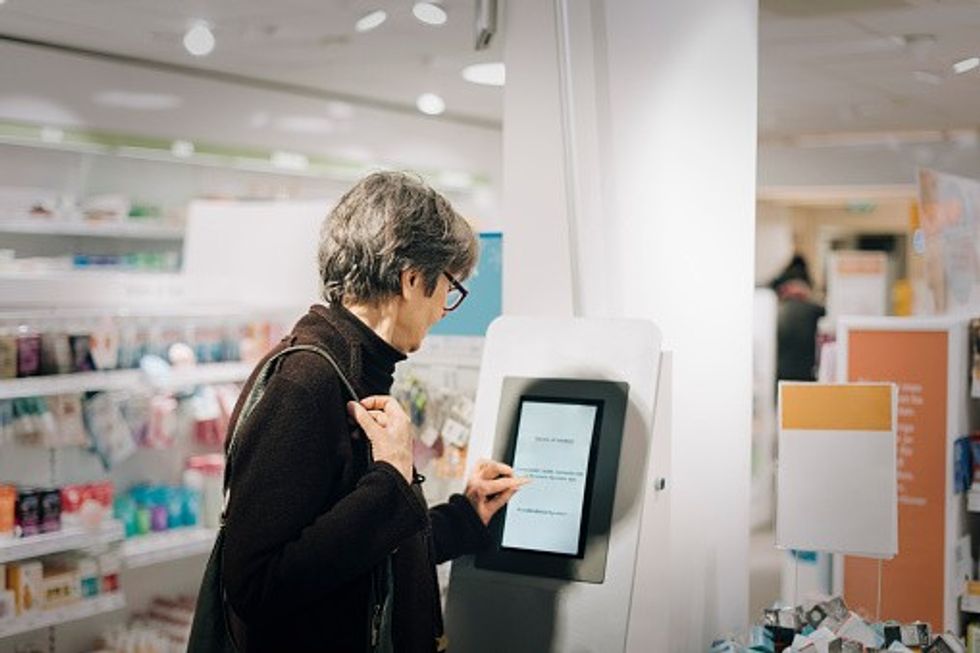Jonathan Board of Christie & Co discusses with Pharmacy Business the trends shaping the pharmacy market
The pharmacy market in England has seen a significant transformation in recent years, driven by a trend of large-scale disposals by corporate operators.
Jonathan Board, Director – Pharmacy, Christie & Co, has told Pharmacy Business that several corporate operators are looking to sell off their marginal or non-performing assets while independent operators are eager to acquire and enhance businesses further.
Due to their scale, corporate operators are compelled to adopt a ‘one size fits all’ approach.
However, Jonathan believes this puts them at a disadvantage compared to many independent operators who are better positioned to meet local patient and community needs, delivering a more personalised approach to patient engagement, and a variety of other services
“As such, where corporate disposals have taken place, there has been a steady stream of independent operators eager to take over and develop the businesses further,” he said.
This shift has resulted in a market composition that increasingly favours regional multiples and independent contractors, while the number of corporate operators has notably decreased.
According to Jonathan, companies operating more than 300 pharmacies now account for approximately 35 per cent of the overall market.
When asked about the factors that most significantly affect pharmacy valuations, he responded, "There are a number of factors to take into account," including:
- Location
- Number of local competitors and whether they are corporate/independent
- Demand
- Ownership structure – asset or company share sale
- Leasehold tenure – term of lease remaining and passing rent
- Private services and income
- Trading income & Profitability
Highly sought-after pharmacy types
Jonathan revealed that while they have been witnessing demand for a wide range of pharmacies, the highest demand currently is for “mid-market community pharmacies.”
“These pharmacies typically occupy secondary parade locations, have relatively low fixed overheads, and offer the opportunity for growth, whether that be organically by increasing items or by offering additional private services to the local and passing trade.
Regarding buyers, he said that they are seeing interest from both first-time buyers and new market entrants, as well as existing operators looking to expand their portfolios, noting that there’s “an abundance of stock on the market.”
Key factors to consider when selling a pharmacy
Jonathan stated that the sale process varies depending on the business structure, determining whether it proceeds as a share sale or asset sale.
“Structurally, the advice you have received over the course of your ownership will have determined whether you operate your business as a sole trader or under a company structure. The sale process will vary slightly depending on which side your pharmacy falls under.
“You can sell your pharmacy as a share sale or as an asset sale.”
He explained the distinction as follows:
The main difference between the two is that, in a share sale, the buyer is purchasing the entire business, which will include all assets, historical liabilities and obligations.
For an asset sale, the buyer purchases only the assets and goodwill of the business without historic liabilities. Your accountant will be able to advise which one is most tax efficient for you.
Other factors to consider when selling a pharmacy are staff protections under TUPE, disclosure of family departures, and property options (freehold retention or lease terms).
Jonathan elaborated: “In terms of staff, TUPE provides various protections for your staff, which a buyer is expected to recognise and accept on behalf of all contracted staff who are transferring on sale. This is a complicated area of law and one that you should take appropriate legal advice on from the outset.
“If you have family members who will be leaving the business, it is important that this is made clear when the pharmacy is brought to market.
“Property is the other main thing to consider – if the freehold is owned, it can either be retained to provide ongoing rental income or sold to the buyer along with the pharmacy.
“Alternatively, if you are currently a tenant, what is the length of the lease remaining, as there may be consideration around extending or renewing the lease to enable a buyer to secure the bank funding required to complete a purchase.”
Jonathan advises pharmacy owners to plan ahead when considering a sale to optimize their pharmacy's value.
“Early engagement with your accountant and an established agent in the sector will help,” he said.
“It does make sense to analyse the accounts to see how the business is performing in terms of gross profit, and also to look into all of the expenses to check to see if anything needs to be addressed.
“The accounts being provided are going to be absolutely integral to the potential sale, so it is important for them to be in the best shape possible,” he added.
Key considerations for potential buyers
According to Jonathan, potential buyers should focus on understanding the specific opportunities and location advantages of the pharmacy.
“Any buyer should be clear on what the opportunity for that particular pharmacy in that particular location is. For example, is it in a particular area with high levels of footfall meaning that OTC income will be more important than it would be in a pharmacy based within a medical centre?” he said.
Potential buyers are also advised to assess the pharmacy’s existing trading data, including the last three years' accounts and FP34 statements showing NHS income.
“The existing trading information for the target pharmacy will be one of the first things to take into account.
“A pharmacy for sale would ordinarily be able to produce the last three years' accounts as well as the FP34 statements for the last 18 months.
“The FP34 statements demonstrate the NHS income, while the accounts will help understand the profits/losses produced by the business so buyers understand its existing position and can then work out what that business may be able to do under their new ownership,” Jonathan explained.

















 A woman using kiosk at pharmacy store gettyimages
A woman using kiosk at pharmacy store gettyimages  Pharmacist examining commissioning machine in pharmacy gettyimages
Pharmacist examining commissioning machine in pharmacy gettyimages 

 Pharmacyexprezz offers blood tests, travel vaccinations, earwax removal, cryotherapy and more.
Pharmacyexprezz offers blood tests, travel vaccinations, earwax removal, cryotherapy and more. The team at Pharmacyexprezz continues to grow
The team at Pharmacyexprezz continues to grow